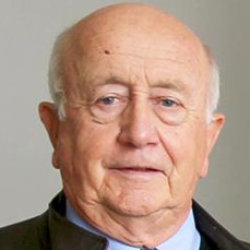Admiral Harris : Ambassador or Viceroy?
February 15, 2018
The appointment of Admiral Harris as Ambassador to Australia raises serious concerns about the role he will play in the development of Australian strategic policy as we seek to maintain the sort of relationship with China and the US outlined in the White Paper.
President Trumps nomination of Admiral Harris as Ambassador to Australia confirms another open secret which has been circulating inside Canberra for many months. Diplomatic politesse, of course, demands that this appointment be welcomed as it fills a gap left vacant for too long by our major alliance partner,. But the alacrity and gushing commentary with which it has been greeted in Canberra gives rise to some serious concerns.
This is no normal ambassadorial appointment as it could have a long term bearing on Australias own national interests. Judged by his speeches on his many visits to Australia in recent years Harris is clearly no shrinking violet. He has dived right into some of the more sensitive political debate in Australia around the development of our own national strategic thinking. And we must assume he has been even more outspoken in his confidential meetings around Canberra. The speeches , often very thinly disguised pep talks, not only sought to convince the Australian public of his views on the strategic challenges ahead in our region but also to exert pressure on Australia to be less passive in our reaction to them.
More specifically, he has long been a strong public voice urging Australia to take a much more aggressive line with China in the South China Sea. As head of US Pacific Command(PACOM) from May 2015 he also would have had a leading role in scheduling other senior officers from his command to undertake visits to Australia to promote the same agenda in public presentations. Some went even further to launch the idea of a Joint Australia:US Expeditionary Force, presumably based in Darwin. What such a force would be designed to achieve and how it would be received in our immediate north was never explained. Nor was there ever any sign of sensitivity on the Australian Governments part about this sort of foreign involvement in Australian policy making!
It is difficult to see how, as Ambassador in Canberra , Harris would not seek to carry on this campaign with Australian politicians on both sides and the powerful defence security elite in Canberra which is already so well locked into the US system. There is little evidence that Harris will be able to assist in getting the White House to understand Australian concerns on strategic as well as other important issues in our wider relationship. He will be very much a “Make The US Great Again ( at all costs!) ambassador.
Some Australian commentators have naively suggested that Harris will have direct links into the White House which could prove valuable to his Australian interlocutors. Anyone who has been following, in even the most cursory fashion reporting on the dysfunctional White House, knows how risible that is.
Harris peppers his speeches with references to his idol , Winston Churchill, and Trump has placed a Churchill bust in the Oval Office. Many historians might wonder at this choice given the litany of mistakes laid squarely at Churchills door not the least of which was the Dardanelles campaign which ended so tragically and which we acknowledge every year on ANZAC Day.
Australian media has sought to focus on the unsurprising ,but nonetheless pointed, Chinese reaction to the Harris appointment. But comment from our South East Asian neighbours has been scant. We should be under no illusion that the Harris appointment will be seen by many in that region as a further sign of how far Australia is being drawn under the US wing a significant step beyond Deputy Sheriff.
There has been media reference here to the fact that Harris will be the first US military officer to serve as Ambassador in Australia since the heady days of General MacArthur during WW11. A quick dip into the history of those days is enough to illustrate just how difficult MacArthur was for the government in Canberra. For example, the Australian Government lobbied hard all the way up to the White House with a special envoy to have an Australian Army Division included in MacArthurs Leyte landing. Macarthur refused to do so and the Australians were diverted from the convoy to Borneo (another story!) but all their support ships went on to Leyte which incidentally saw the largest number of RAN ships at sea ever in the operation.
Harris is no MacArthur but he may not prove easy to manage as Australia seeks to manoeuvre between our own very real Scylla and Charybdis ahead.
Mack Williams, F__ormer Ambassador to the Philippines and the Republic of Korea. Royal College of Defence Studies
